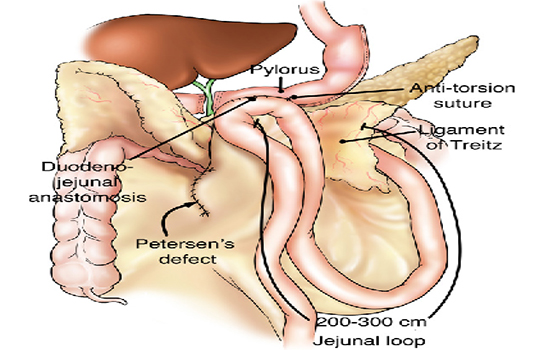Duodenojejunal Bypass surgery in delhi

Frequently Asked Questions
- What is the difference between bypass and duodenal switch surgery?
Ans. The gastric bypass is recommended for patients with a BMI between 40 and 50, while the duodenal switch is reserved for patients with a higher BMI range of 50 and above. The duodenal switch procedure may be more effective than gastric bypass for individuals with a BMI of 50 or higher. The surgery can lead to significant weight loss and improved metabolic control.
- Is the duodenal switch surgery safe?
Ans. While any surgical procedure has risks, duodenal switch surgery is one of the safest surgeries to undergo. It is considered safe or more safe when compared to other elective surgeries. The duodenal switch has the best overall weight loss results compared to the gastric bypass and the gastric sleeve.
- Can you gain weight after duodenal switch?
Ans. Stretching of the stomach pouch, which leads to overeating, also causes weight gain after a sleeve gastrectomy and duodenal switch, but it is rare with the latter procedure. Unfortunately, complications may happen after surgery.
- What foods to avoid after the duodenal switch?
Ans. Avoid sugar, sugar-containing foods and beverages, concentrated sweets, and fruit juices. Follow a diet low in calories, fats, and sweets. Keep a daily record of your food portions and your calorie and protein intake. Avoid alcoholic and carbonated drinks after the surgery.
- How long does it take for stomach to heal after duodenal switch?
Ans. Most patients can resume work after 2 weeks and should experience complete recovery in 4 to 6 weeks once the incisions have fully healed. A restricted diet and regular exercise regimen are then encouraged to be implemented by patients.
